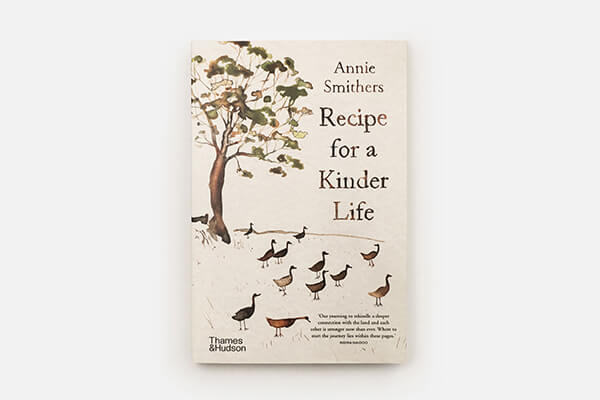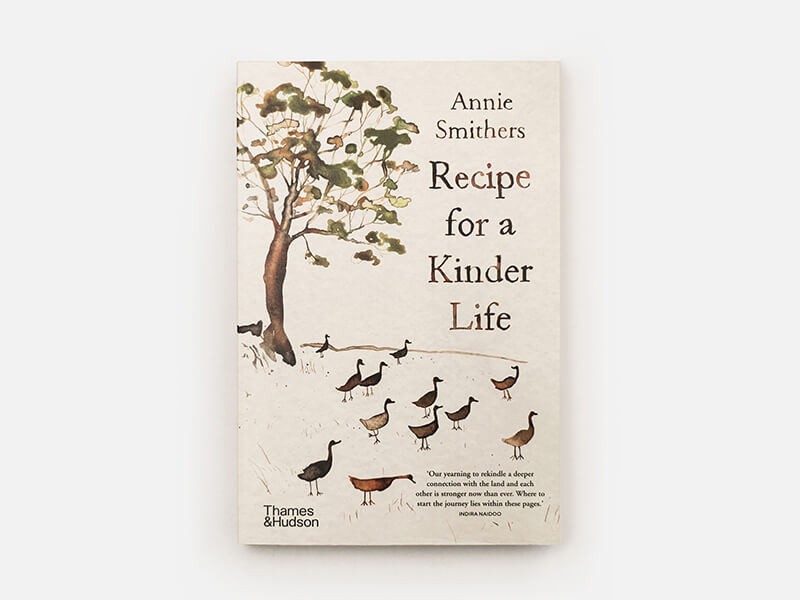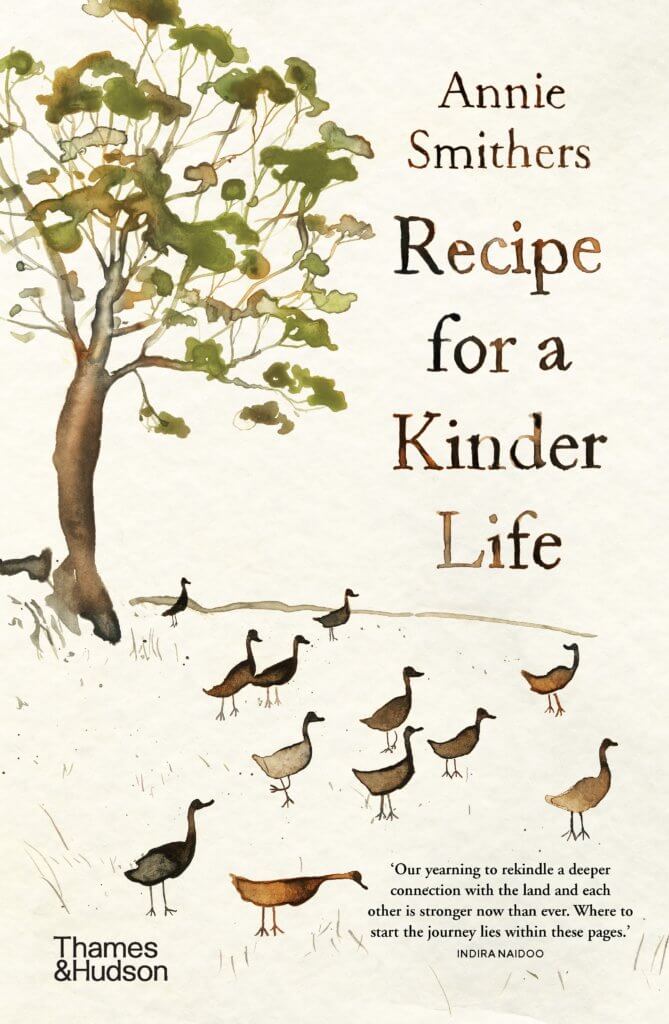
In Recipe for a Kinder Life, the inspirational cook Annie Smithers shares her wisdom on living a gentler life, and forging deep connections with the natural environment, the community and the self. She discusses the significance of balance and rest for personal wellbeing in the extract below.

Another huge step I have taken in protecting my mental health is embracing the notion of choice, understanding that no one forces me to do all the things that I do. All the decisions that I make are mine to take responsibility for. In the past, I might have blamed outside influences if I felt that I was working too hard; now I have a strong sense of what is enough or too much, and if I choose to do too much, I must accept all that comes with that. As an employer, a partner, a step-parent, a member of a community, there is always the opportunity to show, not tell. Leading by example, and being a communicative person, allows others to observe my way of finding balance and assess whether there is anything in it that could make their own life more comfortable.
All this striving for, and reflection on, a better balance so I can sustain myself to achieve all I want to do in all the spheres of my life is one reason that I have come back to observing the eight-hour day. The hospitality industry is infamous for its mistreatment of workers and its long and unsociable hours. It has become very important to me not to expect any of my employees to work more than an eight-hour day. This should hardly need explaining but, in any case, it is clear that it allows people to make their own choices and arrange their lives to suit their needs and wants. It means that if they wish to take on a second job, they can; if they wish to go home and garden, they can; if they wish to go home and sit in front of the telly for the evening, they can. From experience, I know that it is often difficult to tell your boss that you are working above your capacity and/or outside your designated work hours, and I am equally aware of the effects of too much work on the body, the mind and those around you.
This also ties in with how we manage the restaurant-related devices. As we run a very small team at du Fermier, we tend not to answer the telephone during lunch service. This is so that we can completely devote ourselves to the customers in the room. It also means that we can return messages in an unhurried manner later in the day, making sure that the customer at the end of the phone is now the absolute focus. Answering emails is done in a similar manner. We have a manual system that we like to think offers a personal-service touch, but I am sure that some of our patrons would love us to answer messages and emails twenty-four hours a day. I can’t expect the people who work with me to take on this responsibility and deal with customers at all hours of the day and night, given that I won’t myself. The division between work, leisure and sleep has become very blurred. I, for one, do not think that this is a positive. In embracing a more sustainable approach to life, how we operate at a personal level, with our own resources, is at the core of our existence. Sustainability is not just about using the earth’s resources more responsibly; it is about better using your own.
Sleep is, without doubt, a very important part of my day. Making the decision a few years ago to stop operating the restaurant in the evening has been absolutely revelatory for my personal wellbeing. I have never been a night person; I am happiest tucked up in bed and ready to go to sleep when it’s dark. The hours that I sleep change seasonally: I often sleep more in winter and less in summer – a little like the animals in the yard. The geese, the goats and the chickens all run to a clock that is not based on hours but on daylight. It seems to be a pattern that I am following more and more as I spend a greater amount of time caring for them and working outside in the garden. It is as if their needs and mine are becoming very similar.
The surprising (or maybe not) result now if I don’t get enough sleep, or even rest, is not pretty. Tired, irascible, perfunctory Annie is no fun for anybody, especially me. This is screamingly obvious when the side effects of not enough rest and sleep include weight gain and systems failure in various bits of my body. As the pace of this modern world keeps getting busier, it is up to each and every one of us to decide how much to commit to the external forces at play, how much we engage with them, where our priorities are, and to try to find a place for ourselves that fits with our personal, financial and relationship values.
After thirty years of living in the country, I am trying not to become a stranger to the needs of city and suburban folk. I imagine that smaller-scale gardening, long walks and various forms of exercise replace the chores of farm life. And I imagine that reading, theatre and dining out are much higher on the agenda than they are for me, which exposes the nature of balance. For each of us, no matter where we live, our location enables us to find the day-to-day rhythm that suits us best in that environment.

This is an edited extract from Recipe for a Kinder Life, available now. Text by Annie Smithers and cover design by Daniel New.
AU$32.99
Posted on July 27, 2021